If you’re curious about why is it important to love yourself, then this is the post for you, considering it’s devoted to those interested in uncovering just how powerful self-love can be. But also, how to start loving yourself and enjoy the benefits of self-love.

Why It Is Important To Love Yourself: 5 Essential Reasons
The reasons why it is important to love yourself come down to living a more authentic life, having better relationships, preserving your mental health, making more independent choices, and upgrading your parenting.
This is not the full list of benefits but it’s enough to understand just how many of them can self-love bring. So in this post we’ll first talk about the most important details concerning self-love. You’ll have clarity and feel at peace with your choice to increase your love for yourself.
And secondly, we’ll explore these 5 most important reasons that suggest how important really is to love yourself in more detail.
If you’re ready, then we should jump right into uncovering more about the unique reasons that show how important is to show love for yourself. I’ll briefly explain what loving yourself means for those who are unsure.
Let’s begin.
Note: Even though I am a licensed clinical social worker (LCSW), I am not your licensed clinical social worker (LCSW). This means engaging with our website is not considered a professional social worker and client relationship. This also means you should not consider this information as professional advice. Although we do put in every reasonable effort to provide the most accurate and reliable information, this does not replace professional advice, and you should not rely only on them. You still might need to consult a professional to introduce your particular situation, issue, problem, or position. Read our full Disclaimer here.
This post has affiliate links which means that we make a commission from qualifying purchases at no additional cost to you. For more information read our Affiliate disclosure.
WHAT LOVING YOURSELF REALLY MEANS?
Loving yourself means you’re skilled at following the path of authenticity in uncovering your true desires and at meeting your needs in a way that you provide well-being and balance for yourself. But without:
- disrespecting and overstepping the boundaries of others,
- exploit of others and their well-being,
- or endangering their human and other rights.
So handling your needs but being responsive to the needs of others, too.
It’s good to note that self-love is not uniform – the expression of self-love can be distinctive for different individuals and cultures, which means 2 people can take care of themselves unequally, with both ways still being considered self-love.
No matter the way you’re obtaining and practicing self-love, the main focus usually is:
- that you support and encourage yourself to take care of your body and physical health, mental health, and personal development.
- that you set boundaries for yourself and others that interact with you, so it’s comfortable to you, but it’s responsive to the needs of others involved.
- that you stop sacrificing your well-being, mental health, and physical health so you please others.
Deficiency of self-love can result in bad habits or a bad lifestyle, troubling personal and professional relationships, physical or mental health problems, etc. On the other hand, pleasing others often comes from having the impulse to prove to them that you’re nice, good, kind, or worthy. Or from feeling obligated to do so.
The thing to remember is that we’re not talking about this so you focus on blaming yourself because you’re prone to pleasing others. Or because you are, on the other hand, too demanding and lacking the skills to respect the personal boundaries of others around you, or disregarding them in communication.
Staying stuck with blame is pretty useless. The focus is for you to recognize whether or not you’re prone to this, and then make a decision to move away from this pattern for your own good. Naturally, after you’ve finally acknowledged that you deserve and CAN live better.
Sometimes this is the hardest part.
Now we can move to the top 5 reasons self-love is important for your life.
WHY IT IS IMPORTANT TO LOVE YOURSELF

1. FINDING BALANCE IN LOVING YOURSELF WILL UPGRADE YOUR PARENTING
Self-love is linked to good parenting due to various reasons. Therefore, we should mention the most important ones.
Firstly, when you model self-love to your children, that’s the best gift you can give them. Considering a positive example is the easiest way for you to ensure that they’ll follow it in their lifestyle. If you set a good example, then they’ll have fewer risks of being stuck in unfulfilling relationships, dissatisfying jobs, and even career choices, to preserve solid mental health.
You’ll be so content with how their lives turned out. If you’re ready to devote yourself to your self-growth so you can become the best example and model possible, for your kids, I suggest you choose a self-love journey as soon as possible.
Many parents believe they need to learn tactics to ”deal” with kids and that this will somehow resolve any issues or prevent every potential hurdle. But what will actually be useful, is having the right approach to parenting in general. The right approach to parenting and therefore to kids, is what changes things for any parent. Your kids are kids for a very short period of time and you don’t get a second chance with them.
Secondly, with more self-love, you’re prone to better decision-making about your family life which, consequently, leads to more positive outcomes for your children. Decisions that come from a place of stability and determination are more likely to be beneficial.
Thirdly, more self-love usually is usually linked to maintaining healthier and more fulfilling relationships. We’ll explore this in a separate heading, but it’s worth mentioning here. By this, I mean your intimate partnership, your and your partner’s relationship with kids, and relationships with other people that are important to you. Even your professional relationships.
Next, it can lead to more satisfaction and happiness in your life and this will reflect in their lives too. Because you will treat them better, and at the same time they’ll be happy to have a parent like that. Now, this doesn’t mean you won’t feel any pain, loss, or sadness in life. It’s a trap to think that’s your goal here.

Mastering life means that you find a way to integrate all of these things as parts of life and get through them as they come, so you can move on, and eventually, evolve. It also means, you shouldn’t wait for happiness, considering happiness is following your journey, if you let it be with you, all along.
At the same time, it’s important to note that our lives shouldn’t be oriented towards a chase for happiness, considering this is just a feeling and nothing more. Just like any other feeling.
Knowing how to be happy can be also seen as a skill in a way, instead of a destination you’ll reach once you achieve this or that. As you probably already know, from your own experience. You’ve probably learned that happiness about any of your successes doesn’t last as long as you expected it to last, in moments when you were still hoping to reach that success.
Finally, self-love means taking care of yourself so you’re able to take care of your kids the best way you can. If you neglect yourself your children will be affected first. This isn’t always the case, because you might end up as the only one that’s losing here and I must say this – you’re not anyone’s servant. And you need to set boundaries to be able to function.
This is essential for everyone’s sake, not just yours. It may sound counterintuitive, because you may think that the more you give the better. But that’s not the reality here. The reality is that you need to give enough. And you can’t give enough if you lose yourself, and your strength, and weaken your parenting capacity along the way.
YOU MAY ALSO LIKE:
2. LOVING YOURSELF HAS THE POWER TO IMPROVE YOUR RELATIONSHIPS
Self-love is very important in any type of relationship, so in intimate partnerships, friendships, or professional relations. Firstly, it ensures that you’ll set comfortable – flexible boundaries between yourself and the others.
This reduces the probability of someone being abusive to you, overstepping the boundaries, taking advantage of you, and similar. It’s simply because this way they know what you won’t let anyone do to you when in a relation to you. Of course, this isn’t bulletproof, but it goes a long way.
Having set proper boundaries will even ensure that some people that are prone to exploit others bypass you or leave you. Either as friends, partners, or colleagues. And the more aware of your value you are, the more you’re likely to protect it in the best way. (By not letting others deny your rights, your voice, or your worth.) You’ll be more empowered.
Secondly, when your identity is rounded you feel better about yourself, your place in the world, your worthiness, so your self-love gets to be more rounded. With more rounded self-love and more sense of your personal worthiness, you’re more aware of what you need as well as what you don’t want or need, so then you’ll form and have better relationships.
And be ready to drop those that are not good for you or you feel are toxic.
On the other hand, people can also have trouble respecting the boundaries of other people. And this is potentially a sign of a lack of self-love, too. If you aren’t skilled, or you are accustomed, to disregarding other people’s boundaries, you need to look into this and do something about it as soon as possible.

How you can know if you’re doing that:
- You’re maltreating others, you’re abusive and exploitative.
- You’re emotionally exploitative (you ask others to constantly emotionally support you but you don’t do the same for them).
- The majority of the time you’re trying to dominate others instead of connecting with them, in communication.
- You’re trying to dominate others instead of treating them respectfully, equally, and carefully so you avoid negatively affecting their dignity.
- You’re continuously overstepping other people’s boundaries.
- You find it hard to keep your boundaries flexible (and you can’t ”tighten them up” enough) so then you’re too sensitive to anything that’s jeopardizing your comfort (you’re aggressively trying to preserve it). But then you’re not sensitive enough to not jeopardize the comfort of others.
- You find it hard to detect or put up with distinction/division between you and others, so you keep the boundaries too soft. And over time you naturally stop being comfortable and become too sensitive which forces you to respond aggressively.
- You didn’t have good role models so you lack the social skills to recognize socially acceptable and appropriate communication or behavior.
- You’re insecure about your levels of social skills to maintain balanced communication, so you avoid appropriate communication out of fear you won’t perform well.
All of this is not less of an issue than it is when people fail to protect their boundaries. Personal boundaries are crucial for the process of individuation. This is a process of reaching a stable, independent personality.
The more independent you are the more aware may become that others you have a relationship with will also have this need. So you’ll respect it more.
Plus you’ll recognize that healthier relationships nurture balanced co-dependence. Where you’re close but not too close so you are too co-dependent. And not far so you lack an emotional bond and closeness.
Read my post Why Is Self-love Important In A Relationship? for more details on this topic.
You may also find useful:
List Of 41 Things To Do For Self-Love
and 7 Ideas For Self-love Growth That Is Exponential
and Is Self-love The Best Love You Can Give Yourself (+46 Reasons Why)
3. OBTAINING LOVE FOR YOURSELF WILL PRESERVE YOUR MENTAL HEALTH
This reason is connected to a previous one because often mental health can be affected by self-love, and vice versa.
The better you are for yourself, but by doing it healthily, with focusing on your personal growth and progress, the more chance you get to obtain self-love. If your habits are mostly harmful to you and others, naturally, this doesn’t positively contribute to your self-growth.
Increasing self-love can support your mental health strongly because it acquires that you strengthen self-acceptance. This means self-love supports self-acceptance, and self-acceptance supports self-love. Meaning they strengthen each other.
Firstly, to begin loving yourself, you need to start by learning how to accept yourself and everything about yourself. But when you’re accustomed to following excessively strict moral norms, this may sound very challenging. You may be prone to self-punishing. Well, I’m positive you wouldn’t choose to continue with it anymore.

The alternative is learning how to give up on observing things and yourself only through black and white categories and seeing yourself as worthy only when you’re the best of the best. Or see yourself as the worst if you failed at something.
It’s critical to drop this type of criteria for worthiness, success, or kindness in life. For your own good, and the good of others close to you.
When you learn how to accept yourself entirely, after you acknowledge you’re allowed to go that way, then you can start changing things you don’t want in your life. And enhance parts that you do.

Secondly, maybe even more important is to give up on trying to achieve acceptance everywhere you go and from everyone. Or the idea they should all like you. Write this as a reminder if you need to, and come back to it.
This is negatively affecting your self-love and you’re probably not aware of just how much. Moreover, on some occasions, this is ruining people’s lives. The reason for this is the fact that by trying to do this, you’re only depending on someone else’s approval. And aren’t including your true desires and needs. Your ”true calling”.
Most of the time we only really care about the approval of a very narrow group of important people in our lives. But we’re having trouble realizing this. Maybe because we’re more focused on our own reflection on others than on how we see and value ourselves.
This doesn’t mean we shouldn’t care what other people think of us and that this is a bad thing. (This is ok, good, and humane.) Or to forget about shame, responsibility, accountability, ever feeling guilty, etc. It simply means to find a healthy balance that’s suitable, as we talked about in the beginning.
Self-love and self-acceptance are important if you strive to have a healthy connection with yourself. And this is beneficial for your mental health. Lack of self-love and self-acceptance can result in mental health problems.
HOW NURTURING SELF-COMPASSION SUPPORTS THE GROWTH OF SELF-LOVE
When you practice self-love the way it’s right for you, you start learning how to be more compassionate with yourself. At the same time, being compassionate with yourself is the way to increase self-acceptance and self-love.
And it can lead to change because it helps you to drop the resistance created by your beliefs that you’re not worthy of love (for example if you did something you see as ”bad”).
What happens to many people when we realize we’re facing difficulties with self-love is that we’re strict with ourselves. Yet, at the same time, we’re usually compassionate with all the others close to us. So we tell them to be kind to themselves. While we’re being extra harsh to ourselves, in the same situations that we were asked to comment for them.
So next time you start with negative self-talk, stop for a second and think about what would you say to your friend or someone else you care about if they were in your shoes at that moment.
When you see the difference, consider talking to yourself the way you would to a friend. This will move your self-love to the next level.
If you need guidance on cultivating self-love through self-compassion check out my post with a list of 10 helpful self-love workbooks.
The key is to understand that even if you don’t like things that you do/did, you find a way to accept different parts of yourself. Especially the ones you don’t like because this is the beginning of the way to changing them.
And of course, to continue working on changing them so you get where you want to be. Or simply stop with some things or practices. So then even if it’s not going the way you’d like or you relapse, you’re still compassionate with yourself and nurture your way to your goal this way.
However, it’s critical to note that you should not use self-compassion as an excuse to continue doing things you’ve learned are not ok to do to others.
If you found the information on the blog helpful & inspirational and you feel like giving back, you can do it by clicking the donate button after entering amount you’re comfortable with. I’ll use it to create and deliver more useful content and resources like this. Thanks for your precious contribution!
You May Also Like:
4. WELL-ROUNDED LOVE FOR YOURSELF IS CLOSE-KNIT TO MAKING AUTHENTIC INDEPENDENT CHOICES
I talked about this in my blog post SELF-LOVE JOURNEY: 5 KEY QUESTIONS FOR YOU TO BEGIN NOW, where I provided the list of the 5 most important questions you should be asking so your self-love starts blossoming.
What’s crucial here is that:
- The course of your life isn’t dependent on proving your worth or proving to others that you’re good enough.
- Your essential life choices are based on your true needs and desires, instead of doing as you’re ”supposed to do”, and therefore following a path just because it’s paved.
Let’s explore these 2 a bit.
#1 PROVING YOU’RE WORTHY AND GOOD ENOUGH
When your self-esteem is low, you tend to choose the lower goal than you need, the job beneath your achievement capacity and potential, an unfit partner that you can leave when you want it and you don’t get hurt, etc. But as you already know, this soon turns out not to be true.
And soon you get a chance to realize that it’s not possible to avoid getting hurt this way. By agreeing to accept the lower standards, you’re setting yourself for a loss of appreciation you desire.
And your value won’t be recognized, because this choice isn’t a good fit for you. Even though you see and know that you’re better than those from whom you seek appreciation.
You’ll continue to chase that valorization, but it won’t come. At least not as you wish for it to happen. And even if it does come, eventually, it won’t be enough for you. It’s because you’re in the wrong place and nothing can change this. Remember, you’ve chosen the lower goal.
So what you have left, is to either accept it or move away from it. And you probably won’t be able to accept things as they are, and this will continue to create conflicts within you.

You might think that by choosing a ”safe” way, you’ll never lose control over your situation, and you’ll never feel vulnerable this way. Or that you’ll avoid discomfort and pain.
The thing is, if any of these happen, that doesn’t have to be a bad thing. It may even be your ticket to progress and success. It’s not really possible to avoid discomfort and pain if you are to live a meaningful life.
When you’re in a position to keep proving your worth to someone over and over again, it’s either your self-esteem that is shaken that got you there in the first place. Or you are in the wrong place because you’ve fallen for the emotional trap (where you keep yourself in a position to prove you’re worthy over and over again), or you’re manipulated (to keep proving you’re worthy).
Of course, you’re not to blame because this is useless, but a good thing is that you can do something about it. You should look at all of this as a learning opportunity. You got a chance to see the reflection of your self-esteem in your surrounding circumstances.
But when you decide to leave that unfit position, you need to understand that unless this is a situational thing, so there’s no pattern there, you need to deal with your self-esteem and increase self-love. Or this will keep repeating. Considering the lack of self-esteem can block you from recognizing and choosing the opportunities that have the potential to give you what you truly deserve. To give you a sense of purpose.
#2 UNCOVERING YOUR TRUE DESIRES AND NEEDS
We are, and we should be, positively influenced by people that are important to us, and our opinions don’t need to be totally influence-free.
We can freely say that they can’t be completely influence-free. Considering we have our relevant others, who can influence our decisions at least indirectly. But that doesn’t mean we don’t make our own decision, or that it isn’t considered independent decision-making.
This means that as we mature we should be able to form our independent opinions and make our independent choices, focused on our best interests. And not on proving anyone anything, or obeying social conventions.
This means that we give ourselves permission and time to figure out what is it that we truly want and need. And that we stay strong and determined when our choices don’t fit the ideas and anticipations of others. Those others may be our parents, partners, or society.
It doesn’t mean this isn’t really hard to stand up to those expectations or demands. Because they’re there even without the necessity to be verbally expressed. But we need to try to understand what is our inner voice telling us. Our intuition, which we should see as precious knowledge.
This means that we can train ourselves to make the best choices possible. No matter how hard it is at this very moment. This is important in taking a self-love journey, so we make sure we don’t end up living someone else’s life, instead of ours.

Sometimes, we want to believe (or we want others to think this) that we’re in the right place, on the right path. And then we can even keep convincing others who are confronting our ”truth” that we have actually made good choices for our life. But this can turn out not to be the real truth. And our consistent dissatisfaction, which keeps coming back, could be a testimony of that.
You can test this if you try to remember whether or not you experienced discomfort when you were to make real progress in different areas of your life. If there was no discomfort, then you were probably making ”safe” choices.
These safe choices have the function to protect you from subjective or objective threats. Sometimes our choices can place a target on our backs, but often we protect ourselves only from the unpleasant conversations, activities, or separations.
If something isn’t pleasant, that doesn’t make it wrong. Therefore, we should all acknowledge that we must embrace discomfort if we want to make progress. Naturally, that doesn’t mean that we should forget about comfort and safety in life.
If our fears and feelings control our behavior, then we’re not in control of our life, which signifies that overprotecting ourselves often doesn’t do good for us. Generally speaking, they should influence our behavior and put us in motion, and they have the potential to help us move. Instead of seeing them as something paralyzing that signalizes, we should quit whenever we sense any inconvenience.
And we’ve got to the final benefit of loving yourself in a balanced way.
5. LOVING YOURSELF IN A HEALTHY WAY IS A TICKET TO AN AUTHENTIC LIFE
This reason is connected to the previous one, considering our authentic choices are a pathway to authentic life. My best tips on how to live an authentic life, read in my blog post named How To Live A More Authentic Life That Feels Good And True To You (link).
All of our independent authentic choices gradually lean on each other. This way our lives get more and more rounded, stable, and suitable for us.
Social constructs and social conventions are tricky. Because we’re coerced to believe we have to live a certain way. Or else our lives are meaningless, unsuccessful, and less valuable. I’m not suggesting you say goodbye to all social conventions, because not all of them have to be bad for us.
What’s problematic, is putting social conventions before your well-being at any cost, just so you can feel accepted and a part of the mainstream group. Even though something is mainstream, that doesn’t make it right, good, or suitable for all.
Strictly holding on to social conventions and social constructs so we avoid the risk of being unaccepted at any cost, can be a sign of a lack of authenticity. Especially if we’re imposing this on others, and denying them their right to live authentically in this way.
All of us must find balance in our attitude toward social conventions. So we don’t end up enslaving ourselves to them.

The point to take from here is that you don’t need to do anything others are doing if this isn’t right for you, with only one condition and that is that it isn’t hurting others.
By hurting I don’t mean whether or not this is less or more convenient for them. Often this is a trap where people try to convince others around them they’re choices are ok. By hurt, I mean objective hurt, danger, or harm concerning these people’s safety or human rights. Of course, if our personal choices affect other people’s lives and positions significantly, it’s important to be righteous and respectful, too.
Not just to focus on our needs and totally disregarding the needs of those included. What’s important is to find balance, as we talked about at the beginning of this post. So we meet our needs in a way that’s not risking theirs. But if our choices are not linked to other people’s positions, and only affect their discomfort (that doesn’t have anything to do with you, but with them), then you should only focus on what’s right for you when you make those choices.
When you free yourself from the urge to be accepted (and even understood) all the time, and when you understand that not all people can see what you see, or know what you know, then this can contribute enormously to living authentically.
Now that you understand why is it important to love yourself, we should talk about how you can start doing so.
3 Biggest Mistakes With Self-acceptance
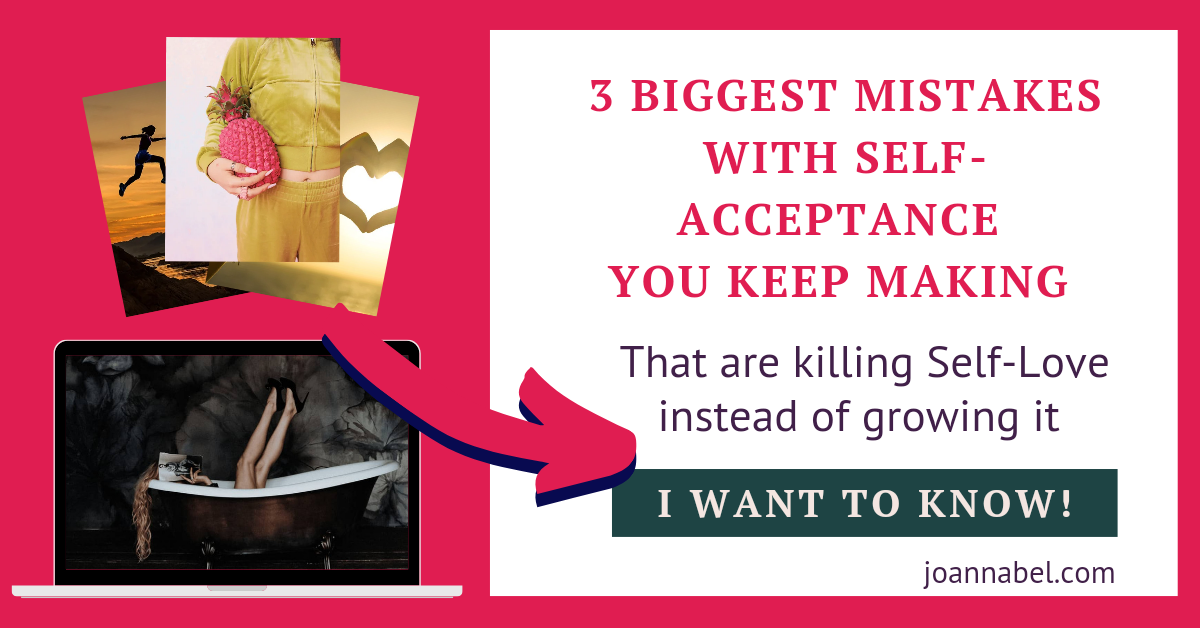
HOW TO START LOVING YOURSELF?
You can decide on self-help, a self-guided option relying on reliable sources. Or use external assistance like for example psychotherapy, but not limited to it only, of course. We’re all different, which means some of us may prefer a more independent approach, for example, while others may firmer structure and a greater directive.
Therefore, before you begin, try to determine which one is you. The first step is reflecting on:
- where you are now,
- where you want to be, and
- why is this important to you?
Usually, the why is critical, because it induces the whole movement to more self-love of yours. But it’s sometimes hidden behind the issues on which you’re focusing more (because you’re centered around removing them from your life). Regardless, it’s important to be clear on your why and to define it clearly for yourself.
Especially because it can keep you strong during the hard days. Considering it’s often hard to resist going back to previous, familiar, more convenient patterns. This way you can start thinking and deciding on what your next steps are. And what you need to do to truly start your self-love journey.
If you decide to go for self-help, what you need to understand is that reading about self-love isn’t enough. You need to practice it consistently and you need to find the best way specifically for you. You can’t copy ready-made solutions. Because nobody else has your experiences, your goals, and plans, and you have your individual pace.
You have available journals, books, programs, courses, training, coaching, psychotherapy, and treatments. Whatever you choose, go for the option that, in your opinion, has the most potential to bring the best results. Remember, in the end, you’re the expert on your own life.

It would be amazing if this option can be the fastest option. But that’s not always the case, and that’s completely alright.
Keep in mind that self-love is something all of us need to continue practicing for the rest of our lives. It’s often enough that you see even the smallest change. Because this has the force to empower you to continue with your self-discovery and self-growth.
Here are some self-love affirmations to support your efforts. Maybe the most important thing of all is to simply begin. You just need to think about what suits you best.
Think about:
- the way you prefer to learn,
- the way you need to absorb information,
- how you are going to hold yourself accountable, and more.
Take some time to analyze it, don’t rush this! It doesn’t matter if those around you have benefitted from one way (like psychotherapy), while you want to try some other (for example coaching).
Here are some helpful resources to check out:
Paid link: Self-Love Workbook for Women: Release Self-Doubt, Build Self-Compassion, and Embrace Who You Are (Self-Love Workbook and Journal)
Embrace who you are with this guided self-love book for women of any age and any background. You’ll embark on your journey of self-discovery by learning what self-love is, and then immersing yourself in exercises to help you build your self-esteem and improve or elevate your relationships.
This very successful self-Love workbook created by a fellow Megan Logan, LCSW is designed with a clear intention to empower women on their journey of self-discovery and self-love. So if you like my approach to self-love you’ll probably like this. Because as you’ll see that I always emphasize that to increase self-love we need some practice and consistency.
The self-love workbooks typically include exercises, prompts, and activities that encourage self-reflection, self-compassion, and self-care, in addition to practical tools and strategies for setting boundaries, managing stress and anxiety, and cultivating healthier habits.
By getting a self-love workbook, you’re benefiting from a valuable resource that can empower you to take control of your mental and emotional health, develop a more positive and compassionate relationship with yourself, and in the end, improve your overall well-being.
I’ve collected a few helpful Self-Love Workbooks in my post: The Best Self-Love Workbooks To Help You Finally Break Free From Self-judgement Through Self-Compassion And Self-Acceptance.
You may want to also check out alternatively (or combine the 2 workbooks):
Self-Love Workbook for Black Women: Empowering Exercises to Build Self-Compassion and Nurture Your True Self (Self-Love Workbook and Journal)
As an African American woman, juggling many roles can leave little time for self-care. With this in mind, here’s an empowering self-love and self-care workbook designed to help you prioritize your joy, healing, and growth, with affirmations and exercises that nurture your authentic self.
Embrace self-love, build inner peace, and cultivate confidence while exploring themes of self-compassion and community.
Paid link: A Year of Self-Care: Daily Practices and Inspiration for Caring for Yourself (A Year of Daily Reflections)
This is a 12-week anxiety and self care journal that will help you process what’s occupying your mind and gently re-frame your thoughts, so you can manage your worries before they get to spiral out of control. This could potentially help if you’re feeling anxious even to start self-exploration.
It was designed to meet you where you are and guide you to developing a practice of dedicating a few minutes a day to reflect on your thoughts, detect the sources of your anxiety, and prioritize your overall wellness and mental health. This is dedicating a few minutes to yourself you really need.
It has:
- Daily Journaling Pages
- Self-Care Ideas
- Therapy Reflections
- Emotional Support Cheat Sheet
- Fear-Setting Exercises
- Habit Trackers
- Monthly Progress
Paid link: The 5-Minute Self-Care Journal for Women: Prompts, Practices, and Affirmations to Prioritize You
This journal offers quick and easy self-care practices to meet your needs amidst a busy life.
It stands out with 150 uplifting prompts promoting growth mindset, mindfulness, and positive intentions.
Spend just 5 minutes on self-love with its effortless questions, affirmations, and actions.
Plus, its user-friendly design makes reflection recording enjoyable.
Paid link: Self-Love Journal for Teen Girls: Prompts and Practices to Inspire Confidence and Celebrate You
If you’re a teen (or get this for your teen if you’re a parent) start the new year by encouraging yourself to embrace self-love and confidence.
The Self-Love Journal for Teen Girls offers affirmations, reflective prompts, and creative activities that can help you understand your emotions and celebrate your uniqueness.
With uplifting quotes and practical exercises, it’s a powerful tool for fostering self-awareness, self-worth, and self-care.
Paid link: SELF-CARE ACTIVITIES FOR WOMEN: 101 PRACTICAL WAYS TO SLOW DOWN AND RECONNECT WITH YOURSELF
Prioritizing well-being is crucial, especially for women who often/usually prioritize others.
“Self-Care Activities for Women” offers a variety of ways to relax and find joy, covering emotional, mental, physical, social, and professional care.
With 101 simple activities, from creating a joy playlist to cooking a healthy meal, this book encourages making time for ourselves and cultivating a habit of self-check-ins.
Paid link: SELF-LOVE JOURNAL FOR WOMEN: Prompts and Practices for Your Journey to Self-Worth, Self-Care, and Self-Acceptance (Workbook and Journal)
Self-love journals often include prompts for self-care activities and practices. By prioritizing self-care and making it a regular part of your routine, you can nurture your physical, emotional, and mental well-being.
This Self-Love journal includes prompts and practices for taking a path of self-worth, self-care, and self-acceptance.
Women everywhere encounter unrealistic societal expectations that lead to feelings of overwhelm and discontent with themselves. However, discovering the path to self-love and embracing our uniqueness can significantly alter our perspective on life, and this guided journal is designed for just that.
WHY IS LOVING YOURSELF SO DIFFICULT?
Sometimes it looks like it’s easier to withdraw from the discomfort of having to decline the requests of others, standing up for yourself, or asking something for yourself. But in the long run, this builds up and creates anger, resentment even misery, and potentially, even mental health issues.
On the other hand, acting aggressive with your demands might come from the fear that your needs won’t be met. For instance, if you have previously experienced this in the past repeatedly. Or if you didn’t have a chance to have personal boundaries respected/protected.
If this is the case, that doesn’t mean that, now that you’re an adult, you should wait for someone else to give you a permission to choose self-love or to do it for you. This is on you know. It’s your well-being and your future at stake. Right? And it also brings back the power to you, where it belongs.
For all of us, it’s easier, more comfortable, to follow the impulse and either be aggressive or withdraw in communication (passive). But what gives more results and creates far better outcomes in interpersonal communication and relationships, is being assertive.
To communicate assertively means that you stay firm with your request while being gentle with the person you’re communicating with.
On the other hand, pleasing others often comes from having the impulse to prove to them that you’re nice, good, kind, or worthy. Or from feeling obligated to do so.
The thing to remember is that we’re not talking about this so you focus on blaming yourself because you’re prone to pleasing others. Or because you are, on the other hand, too demanding and lacking the skills to respect the personal boundaries of others around you, or disregarding them in communication. Considering staying stuck with blame is pretty useless.
Our focus is for you to recognize whether or not you’re prone to this, and then make a decision to move away from this pattern for your own good. Naturally, after you’ve finally acknowledged that you deserve and CAN live better. Sometimes, or better said- oftentimes, this is the hardest part. Of course, there could be different and even various reasons why you’re having difficulties with cultivating a love for yourself.
If self-love feel hard for you, read my post that explores 6 probable reasons why this may be true.
WHY YOU MAY FIND IT CHALLENGING TO LOVE YOURSELF
Society often creates constructs where you as an individual can be placed as less valuable because of some of your choices, identities, or characteristics. It’s enough that you’re a woman, for example, not to mention marginalized groups in one society. And the more rigid and autocratic instead of democratic the society the worse and more toxic it can get.
So you’re not broken, this is simply a logical consequence. Still, that shouldn’t stop you from reaching more stability. As I mentioned, there could be more reasons why you’re having difficulties with obtaining self-love. For example:
- painful experiences,
- abusive relationships, or
- lack of positive role models.
If you’re curious to know why it is that way for you read my post: Why Is Self-love So Hard For Me? (6 Probable Reasons)
For many people, concepts of self-love and mindfulness regarding respecting your, or personal boundaries of others, are new or unfamiliar. But instead of focusing on what brought us there, it’s better to orient towards getting out of feeling stuck or exhausted. It’s important that you start from where you are now.

Remember, self-love is important if you are ready to have a healthy connection with yourself and others, meaning, that when you know what you need, you’ll form quality and functional relationships. Because now you’re more aware you don’t need to accept a toxic environment and you’re clear about what you’re comfortable or not comfortable with.
The reason for this is the fact that more rounded self-love helps you recognize, understand, and in the end meet those needs better. This as a positive outcome contributes to your more balanced care of yourself.
This as an outcome, has more skilled and better decision-making and higher self-esteem. Considering you’re clear about, for example, what are the places or who are the people you shouldn’t be wasting your time on anymore.
At the same time, by detecting your true desires in life, you are more prone to recognizing what choices to make and what opportunities you shouldn’t miss in life. And which ones represent regression instead of progress.
You may find this useful:
Now let’s talk about how you can find a balance between loving yourself and being there for others.
A BALANCE BETWEEN MEETING YOUR NEEDS AND BEING RESPONSIVE TO THE NEEDS OF OTHERS, WHEN YOU LOVE YOURSELF
The focus here is not to confuse self-love with satisfying any need or want at any given moment, no matter what happens around you, or if someone is opposing it. This is why sometimes self-love is perceived as selfish – it’s reduced to people taking care of themselves only and skipped a part that people skilled to take care of themselves, can serve others, too.
Moreover, being responsive and sensible about (and sensitive to) the needs of others, even being in service of others, contributes to self-love and self-growth. The thing is that people with good connections with themselves can recognize their needs for self-actualization where the sense of purpose is an important segment.
And ”serving” others provides a unique sense of purpose. This is beyond great, but when out of balance can potentially become problematic. All of us also need to learn how to find a balance so that being in service of others doesn’t turn into an asset for preserving power that isn’t ours to take.
A good example of this is when parenting becomes a lever for inducing our sense of purpose that we’re not ready to let go even when it’s become critical to do so. This is especially visible in moments when it’s time to support kids in exercising independence and the parent is not willing to do this.
It’s important to be mindful of the fact that being in service of others can be seductive and lead us to stray from our individuality and neglecting of different important identities, even roles. Or our problems.
Also, if a parent hasn’t concluded the process of individuation (reaching a stable, independent personality) a parent can try to hold on to being needed as a parent and block the child’s process of individuation that way.
With this I’m not saying you shouldn’t enjoy the sense of purpose that comes out of parenting. I’m simply suggesting that you need to find a balance where you’ll prioritize the child’s need for independence and individuation.
I’m not claiming this parent I mentioned, has an intention to disempower a child. I’m saying a parent forgets to dedicate to their own self-growth, discovering their separate purposes, productiveness, and desires.
Naturally, it may feel easier to deal with other people’s problems instead of ours. While enjoying the superiority and power of being the one who is providing support. This doesn’t seek us to show too much vulnerability, which is frightening. Because it’s exposing us to the inconvenience of revealing ourselves to others, which means we’re at risk that they, for example, may not accept us for who we are.
Not to mention that expressing vulnerability is not welcomed in society and is wrongly labelled as a sign of weakness.
Related:
WHAT IT TAKES TO FIND BALANCE
The solution here is to go back to nurturing self-love and focus on personal development, where we turn to ourselves and connect with ourselves to uncover where is the best for us to express ourselves.
All of this means we shouldn’t fear putting someone else’s needs before ours when it’s appropriate. With kids, this is good parenting. Because we’re receptive and can recognize the moments when this is the best thing to do and we’re showing support.
BUT, when this is our way of functioning, where we constantly ignore (or postpone, forget, sacrifice) our needs and are too flexible with our boundaries, it should be considered if it’s a sign of pleasing others and neglecting ourselves. And potentially a sign of a lack of self-love, which we should deal with ASAP.
To be even more clear, it’s great that you listen and respond to the needs of others. You can even put their needs before yours when it’s clear their needs should be prioritized at that moment. But don’t ignore your need/needs. Especially continuously.
Just find a way to meet them in a different way or find a consensus, as opposed to a compromise – where both sides decide to give up on something. This is a skill, which means you need to be consistent and persistent with this.
Keep away from beating yourself up if this doesn’t go as easy and fast as you’d hope for. Start by:
- communicating your needs more,
- strengthening assertiveness (you are firm with your request but kind to the person you’re communicating your needs with), and
- cultivating sensibility to the needs of others you interact with.
If you’re not sure about universal human needs, and the difference between needs and wants, read my blog post that explores this. All of this doesn’t mean you need to be perfect ever. Or that anyone can hold it together always. We should always aim for good enough when it comes to these things.
SELF-LOVE RESOURCES
Self-love resources are tools, materials, or support systems designed to help you develop a positive relationship with yourself by learning about yourself and knowing yourself better, enhancing self-esteem, and cultivating a sense of self-worth.
I have several blog posts that feature different self-love resources that you can check out:
- THE BEST BOOKS FOR SELF-LOVE AND HEALING (19) FOR UNLEASHING SELF-LOVE
- THE BEST 14 SELF-LOVE JOURNALS TO BREAK FREE FROM UNNECESSARY RESTRICTIONS
- THE BEST 12 SELF-LOVE WORKBOOKS FOR BREAKING FREE FROM SELF-JUDGEMENT THROUGH SELF-COMPASSION AND SELF-ACCEPTANCE
- 7 SELF-LOVE JOURNALS FOR WOMEN (TRANSFORM YOUR LIFE THROUGH EMPOWERMENT)
- 11 SELF-LOVE POETRY BOOKS: LOVE, LINE BY LINE THROUGH POETIC PROSE
- 9 SELF-LOVE GAMES FOR ADULTS TO TRY AND POWER-UP YOUR WELL-BEING
- THE BEST SELF-ESTEEM JOURNALS AND WORKBOOKS FOR ADULTS (7) TO TRANSFORM SELF-PERCEPTION
- SELF-LOVE THINGS TO BUY FOR ADULTS ONLINE (13) TO ELEVATE LOVE FOR YOURSELF
- GOOD SELF-LOVE GIFTS: 12 GIFT IDEAS FOR SOUL NOURISHING
- THE BEST 8 SELF-LOVE GIFTS FOR FRIENDS HAVING A HARD TIME WITH IT (OR YOU)
Latest Posts:
- 4 Ways To Get Your Teen Excited for High School

- Simple Safety Measures To Protect Your Family

- The Biggest Benefits Of Adopting A Dog For Your Family (5)

- How To Turn Crafting Into Family Fun Time (6 Ideas)

- Creative Ways To Play With Kids Without Technology

- How To Make Gift-Giving More Special For Kids (4 Ideas)

FINAL THOUGHTS ON WHY IS IT IMPORTANT TO LOVE YOURSELF
We’ve come to the end of this post. And I’m hoping it answered why is it important to love yourself. It’s essential for you to become fully aware of what it truly means to love yourself and why you should choose to grow love for yourself in your life. Considering this allows you to live your life to your fullest potential.
I’m rooting for you!
Just ask yourself: Why do I think it’s important for me and my life to love myself, and what benefits could it bring to my life? You’ll know what to do once you become clear on the importance.
Now read: SELF-LOVE MEANING: MISCONCEPTIONS SHATTERED.

3 Biggest Mistakes With Self-acceptance


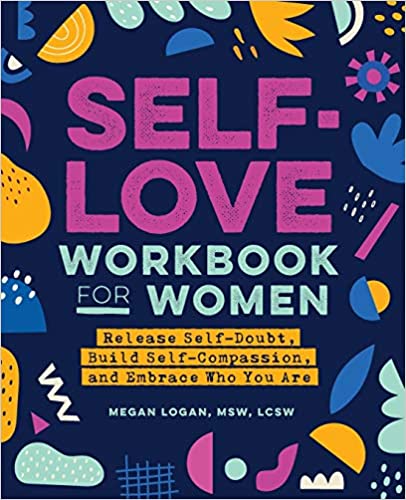
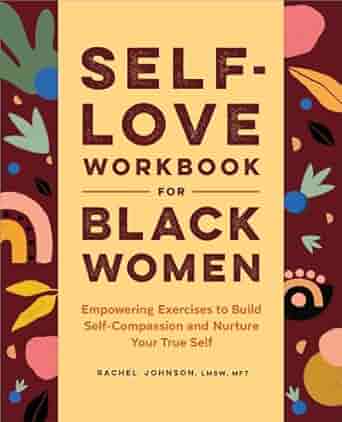
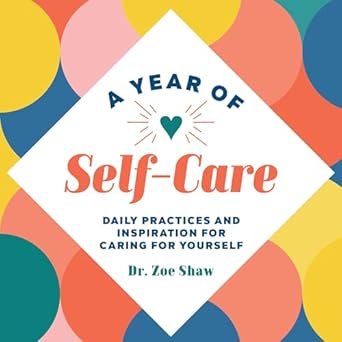
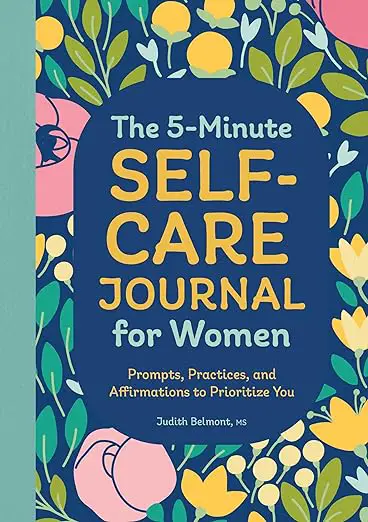

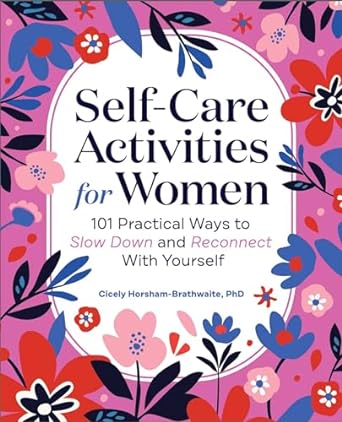
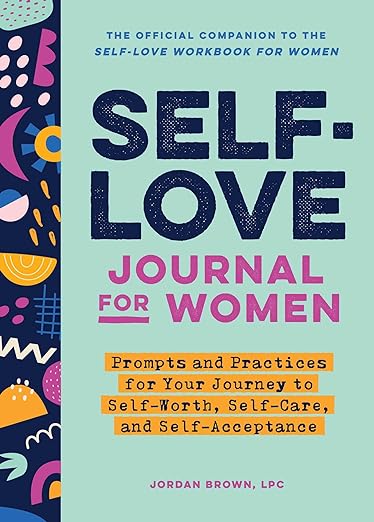






Leave a Reply